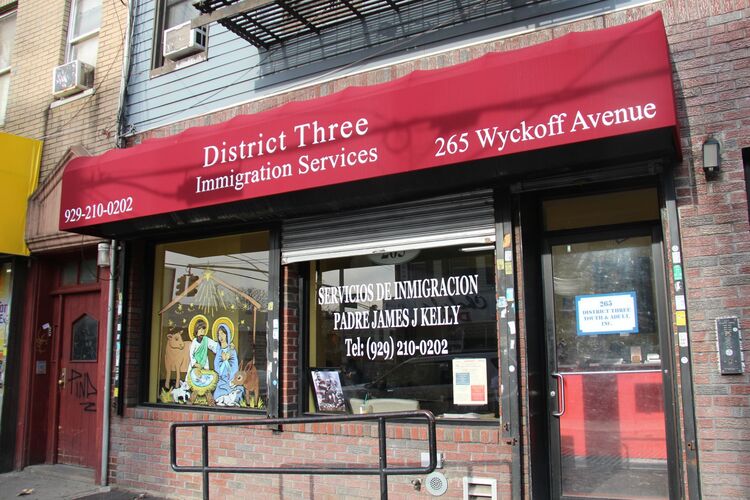It was a great pleasure to represent the UK Government on a visit to the United States last month. I was delighted to catch up with many friends and acquaintances established over 25 visits in the past twelve years.
Even when we disagree, I always welcome dialogue with all those in the United States who take a deep, and in many cases, longstanding, interest in the affairs of Northern Ireland. My visit came against the backdrop of the Northern Ireland Troubles (Legacy & Reconciliation) Act having just become UK law.
Naturally, therefore, this was a major focus of discussion, including with the National Committee on American Foreign Policy, the Ancient Order of Hibernians, at the conference I attended in the Edward Kennedy Institute in Boston, and with Congressman Richard Neal.
It is also an issue with which I have grappled for many years. Over a period of three decades I have spoken to countless victims and survivors, hearing many harrowing and deeply moving stories from people on all sides of the community in Northern Ireland who suffered, and for whom the grief and emotion is as raw today as it ever was. The Troubles touched me personally.
One of my first jobs in politics was to support the Conservative Party’s Parliamentary Northern Ireland Committee, chaired by the MP, Ian Gow. I last saw Ian a few short weeks before he was blown up by an IRA car bomb in July 1990. I am not, therefore, immune to the feelings of those who lost colleagues, friends and loved ones during the so-called Troubles.
I have also been intimately involved in previous unsuccessful attempts to address the past since the 1998 Agreement, most notably the Stormont House Agreement in December 2014. Alas, the degree of consensus we thought had been reached proved to be somewhat illusory.
After five years of unsuccessfully trying to implement Stormont House, it was understandable that, in early 2020, the Government looked afresh at legacy issues. In approaching legacy, the starting point has to be a realistic assessment of what any government can reasonably expect to deliver a quarter of a century after the 1998 Agreement, nearly thirty years after the paramilitary ceasefires, and well over fifty years since the actual start of the Troubles.
We also need to appreciate the fact, difficult as it can be, that current mechanisms for addressing legacy, such as inquests, work only for a very few of those affected.
Established criminal justice processes are increasingly unlikely to produce outcomes for the overwhelming majority of victims and survivors. Through the Legacy Act, the UK Government is, therefore, first and foremost determined to deliver better outcomes for those most affected by the Troubles, with the aim of helping society to look forward.

In our view, the Act puts in place a robust framework to deliver far more information to many more victims and survivors in a far more timely manner than existing legacy mechanisms. It does so, crucially, in full compliance with our international obligations, something that I sought to strengthen further during its passage through Parliament.
Moreover, It also does so in a way that reflects the significant precedent set by previous measures taken in order to secure peace as part of the 1998 Agreement, including the early release of prisoners, an amnesty for the process of decommissioning paramilitary weapons, and immunity to those who provide information relating to the so-called "disappeared."
All of these represented significant departures from usual, established criminal justice processes. The Independent Commission for Reconciliation and Information Recovery (ICRIR) established by the Act will conduct reviews into Troubles-related deaths and serious injury, with the primary objective of establishing the truth and providing information to victims and survivors. The independent Commission will, crucially, have all the necessary powers to conduct criminal investigations as part of any review.
The Commissioner for Investigations will have the full powers of a police constable and be able to compel witnesses. State bodies are under a legal obligation to provide whatever material is reasonably requested by the Commission.
This included records held by the police, the Armed Forces and intelligence services. To help facilitate the provision of information the independent Commission will be able to offer immunity from prosecution to individuals who cooperate with its inquiries. This is not a "blanket amnesty," as some have claimed.
The Act ensures that individuals can only be granted immunity from prosecution in relation to a specific incident, and only where the independent Commission - having robustly tested the truthfulness of an account - is satisfied that it is true to the best of that individual’s knowledge and belief.
Individuals who do not tell the truth, or who do not cooperate with the independent Commission, will not be granted immunity from prosecution, and will, should sufficient evidence exist, be prosecuted in the usual way. At the conclusion of its investigations, the Commission will publish a family report, setting out as far as can be determined the full facts of what happened in each case.
Families will be able to submit a victim's impact statement similar to those that are heard in court proceedings before sentencing.
The only restrictions on what can be disclosed will be the usual ones of not divulging information that might put an individual at risk. While carrying out its duties within the framework of the legislation, the ICRIR will, like the police and the judiciary, be wholly independent of government.
No politician will be able to direct the Commission in its work. Now that the legislation has become law, however, it is crucial that the independent Commission, led by Sir Declan Morgan KC as Chief Commissioner, is allowed time to establish itself.
Sir Declan is a man of impeccable integrity and experience. I am convinced that under his stewardship, the independent Commission will deliver on our shared objective of providing better outcomes for victims and families.
I am the first to recognize the legislation contains finely balanced political and moral choices. As I have said publicly many times, it is legislation that I have found personally challenging.
Yet it is necessary if we are to effectively provide greater information and answers to victims and survivors many decades after the initial incidents occurred.
The alternative is that we risk, once again, delivering very little in the way of positive outcomes for those who have already waited decades. It is the job of politicians and governments to take difficult, often uncomfortable, decisions, rooted in the world as it is, not always how we might like it to be constituted. In taking forward this legislation, the UK Government has done exactly that.
We are confident that it can work and help to deliver for victims and survivors in ways that have proved largely elusive since 1998. All we ask is that it is given the chance to succeed.
Lord Jonathan Caine is the Parliamentary Under-Secretary of State at the Northern Ireland Office. He has been an advisor to six Northern Ireland Secretaries of State.
Lord Johnathan Caine







